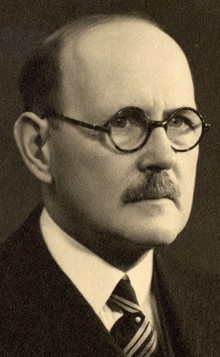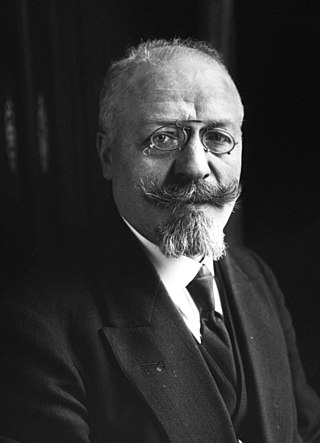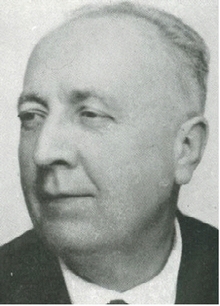Related Research Articles

François Marie Tanguy Prigent was a French Socialist politician who became a resistance fighter during World War II (1939–45). He was Minister of Agriculture from September 1944 to October 1947 and was Minister of Veterans and War Victims from February 1956 to June 1957.
The Confédération nationale de la mutualité, de la coopération et du crédit agricole (CNMCCA) gathers the various components of the French agricultural mutualist and co-operative movement:

Henri-Auguste d'Halluin, known by the pseudonym Henri Dorgères, was a French political activist. He is best known for the Comités de Défense Paysanne which he set up in the interwar period.

The Fédération nationale des syndicats d'exploitants agricoles is a French umbrella organisation charged with the national representation of 20,000 local syndicat agricoles (agricultural unions)) and 22 regional federations.
The French Agrarian and Peasant Party was a French political party founded in 1927 during the French Third Republic by Gabriel Fleurent.
Greenshirts or Green shirts can mean:

Count Hervé Budes de Guébriant was a French agricultural engineer.

Adéodat Constant Adolphe Compère-Morel was a French Socialist politician, agronomist, orator and writer. Characterized as a Marxist doctrinaire, he was one of the founders of the Socialist Party of France. A gifted propagandist, he was a particular expert on social reform in rural France and became viewed as his party's agrarian specialist. He was an associate of the likes of revolutionary Marxist socialist journalist and literary critic Paul Lafargue and authored many books and papers, several of which were partly written with Lafargue. His best known and most influential work was Encyclopédie socialiste syndicale et coopérative de l'International ouvrière, published in 1912.

Jacques Jules Marie Joseph Le Roy Ladurie was a French agriculturalist and politician. He played a leading role in agricultural syndicates in the 1920s and 1930s. During World War II (1939–1945) he was Minister of Agriculture in Vichy France for several months in 1942. He later participated in the French Resistance. After the war he was a deputy for the Calvados from 1951 to 1955, and again from 1958 to 1962.

Joseph Ruau was a French lawyer and radical politician. He was deputy for Haute-Garonne from 1897 to 1914, and was Minister of Agriculture from 24 February 1905 to 2 November 1910. He was known for promoting agricultural cooperatives

The Peasant Corporation was a Paris-based organization created in Vichy France to support a corporatist structure of agricultural syndicates. The Ministry of Agriculture was unenthusiastic and undermined the corporation, which was launched with a provisional structure in 1941 that was not finalized until 1943. By then the small farmers and farm workers had become disillusioned since the corporation had maintained the privileged position of landowners and had not protected them from demands by the increasingly unpopular German occupiers. The corporation, which was never effective, was dissolved after the liberation of France in September 1944.

Christiane Lambert is a French farmer and agricultural trade unionist who has headed the Fédération Nationale des Syndicats d'Exploitants Agricoles since 2017. In 2020, she became the president of the Comité des Organisations Professionnelles Agricoles - Comité Général de la Coopération Agricole de l'Union Européenne.
The Confédération Paysanne is a French agricultural union. It was a founding member of the Coordination Paysanne Européenne, Via Campesina and ATTAC.

The Comités de Défense Paysanne or Peasant Defense Committees was a network of radical agrarian groups France founded in 1929.
The Front paysan was a group founded in 1934 and consisted of:
The Union nationale des syndicats agricoles (UNSA) was collection of French farming unions that was active in the 1930s. It had originally been called the Union centrale des syndicats agricoles (UCSA) but in 1934 changed its name to the Union nationale at the same time as Jacques Le Roy Ladurie, a landowner who had led the dynamic Calvados syndicat became secretary-general.
A syndicat agricole is a French speaking farmers' union.
Gabriel Fleurent d. June 1936 was the founder and leader of the French Agrarian and Peasant Party, a corporatist, right-wing populist and agrarian party.
Joseph Théodore Bilger (1905–1975) was an Alsatian Catholic agrarian activist and autonomist politician during the late years of the French Third Republic.
Henri Albert Canonge was a French syndicalist and a prominent figure in post-war agricultural cooperatives.
References
- 1 2 3 4 5 "Organisations professionnelles agricoles: histoire et pouvoirs". Cairn.info. Retrieved 12 December 2024.
- ↑ Bougeaud, Christian (2002). Tanguy Prigent, paysan ministre. Presses universitaires de Rennes. pp. 151–152. ISBN 2-86847-697-X.
- ↑ Larchevêque, R. (1959). "L'évolution de l'organisation professionnelle de l'agriculture". Économie Rurale.
- ↑ "Un des fondateurs de la CGA, M. Henri Canonge est mort". Le Monde. 26 October 1981.
- ↑ Faure, Marcel (1966). Les paysans dans la société française. Armand Colin. pp. 71–72.
- ↑ Faure, Marcel (1966). Les paysans dans la société française. Armand Colin. pp. 84–85.